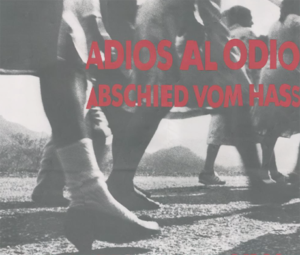Hannah Alpert-Abrams [Español]
Building library or archival collections across national borders always involves a negotiation of power. In the United States, we have a long history of removing historical records from the communities that created them, often in the name of preservation. But these acts of preservation have often been paralleled by an effort to erase, silence, or control the people whose histories we have relocated. Such is the case in many parts of Latin America and the Caribbean.
The post-custodial model of archival practice uses digital technology in pursuit of a more collaborative approach to multinational archival work. The model originated as a response to the rapid increase of born-digital materials produced by institutions, a way of saying “archive your own emails.” But it was quickly taken up by archivists interested in human rights and social justice as a way to shift the balance of power in archival preservation.
At the University of Texas, where I was a graduate student and a CLIR postdoctoral fellow, the post-custodial model has been implemented through partnerships in Brazil, Colombia, Guatemala, El Salvador, Mexico, and Nicaragua. Under this model, rather than taking physical collections from Latin America and bringing them to Texas, UT forms partnerships with holding institutions to improve their capacity to preserve and provide access to their own materials. The priority is vulnerable collections of materials related to social justice and human rights: collections that are of critical importance and that are in critical need of preservation.

In practice, this means that UT provides holding institutions with training in the digitization, description, and digital processing of archival materials, as well as funding for equipment and contracted labor. In exchange, the institutions provide the necessary historical and cultural expertise to produce meaningful archival descriptions. UT also takes custodianship over one copy of the digital collection by hosting it online, in most cases through the Latin American Digital Initiatives online portal.
Over four years working with LLILAS Benson Latin American Studies and Collections, I have come to believe in the potential of the post-custodial model to enable a more equitable approach to digital preservation for vulnerable collections. Given the urgency of the preservation needs for many of these collections, we cannot wait to digitize until technologies and infrastructure are improved or until global equality is achieved. Given recent changes in the ways that research is conducted and history is told, we also face a pressing obligation to shift the balance of power in the digital sphere away from anglophone texts and U.S. interests. This obligation is particularly profound when we consider the role that U.S. foreign policy has played in creating the histories of violence preserved in many of these collections, and in creating their current conditions of vulnerability. In many cases, these histories are our history too.
But the post-custodial model is very difficult to achieve, and there are real differences between the theoretical version described above and its real-world implementation. There are two areas in particular that require further development. I see these areas as opportunities for those of us working in libraries and information studies to engage with the challenge of producing critical digital archives.
The first has to do with the control of information. As David Bliss, the digital processing archivist at LLILAS Benson, and others have taught me, every stage in the digitization process requires engaging with tools and information structures designed first for an anglophone, often U.S.-based audience. This includes the software involved in scanning and processing files, the metadata schemas used to describe archival objects, and the interfaces through which we engage with materials online. To do this work equitably, we must think critically about the hardware and software choices that we’re making, and their impact on our digital interfaces.
The second has to do with the maintenance of long-term relationships in a neoliberal context. At LLILAS Benson, only three out of the twelve people on the digital initiatives team are employed in a permanent role. The funds we provide our partner institutions to support digital work, similarly, can only cover short-term contract labor. Yet equitable partnerships, especially given a national history of betrayal and exploitation, depend on trust built through long-term, personal relationships.
To build post-custodial archives that are more true to the ideal, then, we must prioritize and fund relationships first. This means opening permanent staff positions oriented around digitization partnerships. It also means hiring for cultural knowledge and expertise, including language expertise, alongside technical or archival skills. And it means thinking of community events, including seminars, workshops, and public exhibitions held in partnership with collaborators, as a fundamental part of digitization work. Through this approach, we can recenter our post-custodial collections around what Itza Carbajal, metadata librarian at LLILAS Benson, refers to as our collective good: work that serves the people, including the communities affiliated with them and the individuals who process them, in the United States, Latin America, and the Caribbean.
Any errors in this post are mine, but the ideas were developed through close conversation and thanks to the hard work of David Bliss and Itza Carbajal. I am also indebted to long conversations with Theresa Polk, Alex Galarza, and the Archives and Social Justice Reading Group at the University of Texas.

